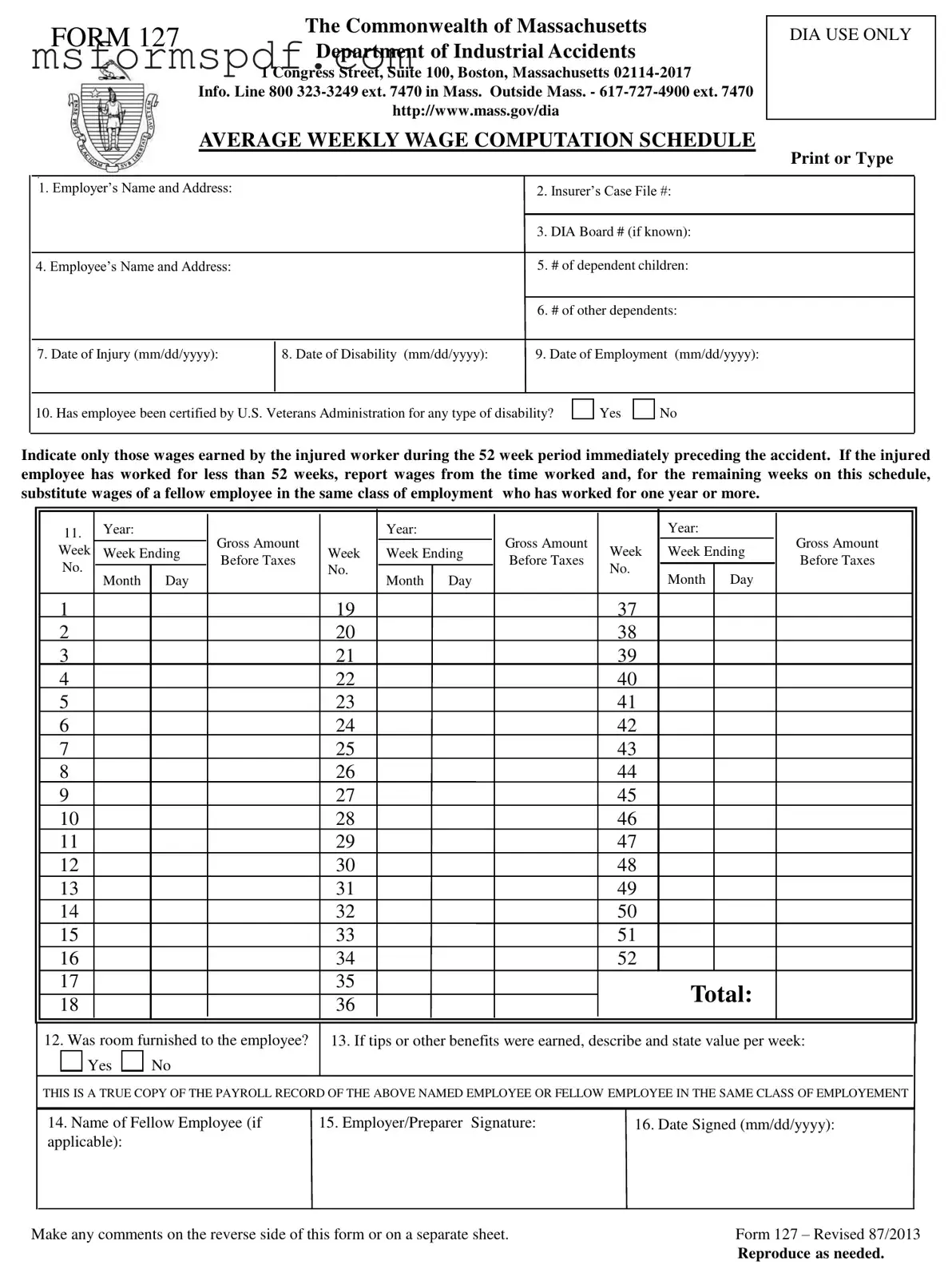Free Massachusetts 127 Template in PDF
The Massachusetts 127 form is a document used by the Commonwealth of Massachusetts to compute an employee's average weekly wage in the context of workers' compensation claims. It is essential for employers and insurers to accurately report wages earned by an injured worker during the 52 weeks preceding an accident. This form facilitates the determination of benefits owed to employees who have sustained injuries on the job.
Launch Editor Now

Free Massachusetts 127 Template in PDF
Launch Editor Now

Launch Editor Now
or
➤ Massachusetts 127 PDF Form
Just a moment — finish the form
Fill out Massachusetts 127 digitally — no scanning, no printing.